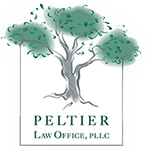
Whether you’re a business owner who’s ready to retire, want to transfer your business to a beneficiary, or even sell it, there are many factors to consider to secure a successful hand-off. Not planning on stopping your work? You still need to plan for the day you won’t be running your business.
A large portion of business owners fail to plan for the day they will leave their business. They’re busy running their business, or sometimes they just don’t know where to start. We can help.
Failure to put a plan in place could result in lost assets at the time of your death. Now is the time to protect your legacy and years of hard work.
Transfer of Ownership
Planning your eventual exit from your business should be one of the most crucial parts of your estate and retirement planning. Putting together a comprehensive plan now can provide retirement income, reduced taxes, and even let you benefit a charity.
Entity Formation in Massachusetts and New Hampshire
It’s critical to choose your business entity wisely so your taxation, liability protection, and transition to the next generation go smoothly. Without a proper plan, you may not get the chance to pass on your business at all. You must put together a succession plan for the good of your company.
Articles of Incorporation
By incorporating a business, you turn your sole proprietorship or partnership into a company formally recognized by your state of incorporation. These articles are legal documents that define how your business operates. By incorporating, the company’s owners create a separate legal entity to do business. This entity — or limited liability company (LLC) — changes how business is seen legally. It also typically carries more credibility with prospective customers, vendors, and even employees.
Business planning strategies may include:
- Strategic entity formation and/or conversion (FLP, LLC, FLLC, Series LLC’s)
- Gifting, sale, and transfer of ownership interests to key employees and family members, often at a discount
- Buy-sell agreements
- Estate tax reduction strategies for the business owner
- Operating agreements and articles of incorporation
- General business planning, including employment agreements, non-compete agreements, and transfer-sale documents
Contact our office in Merrimac, MA, in Essex County. Our experienced estate planning attorneys serve residents of Massachusetts and New Hampshire.
Let us help you understand the planning challenges you face and the options you have available.

